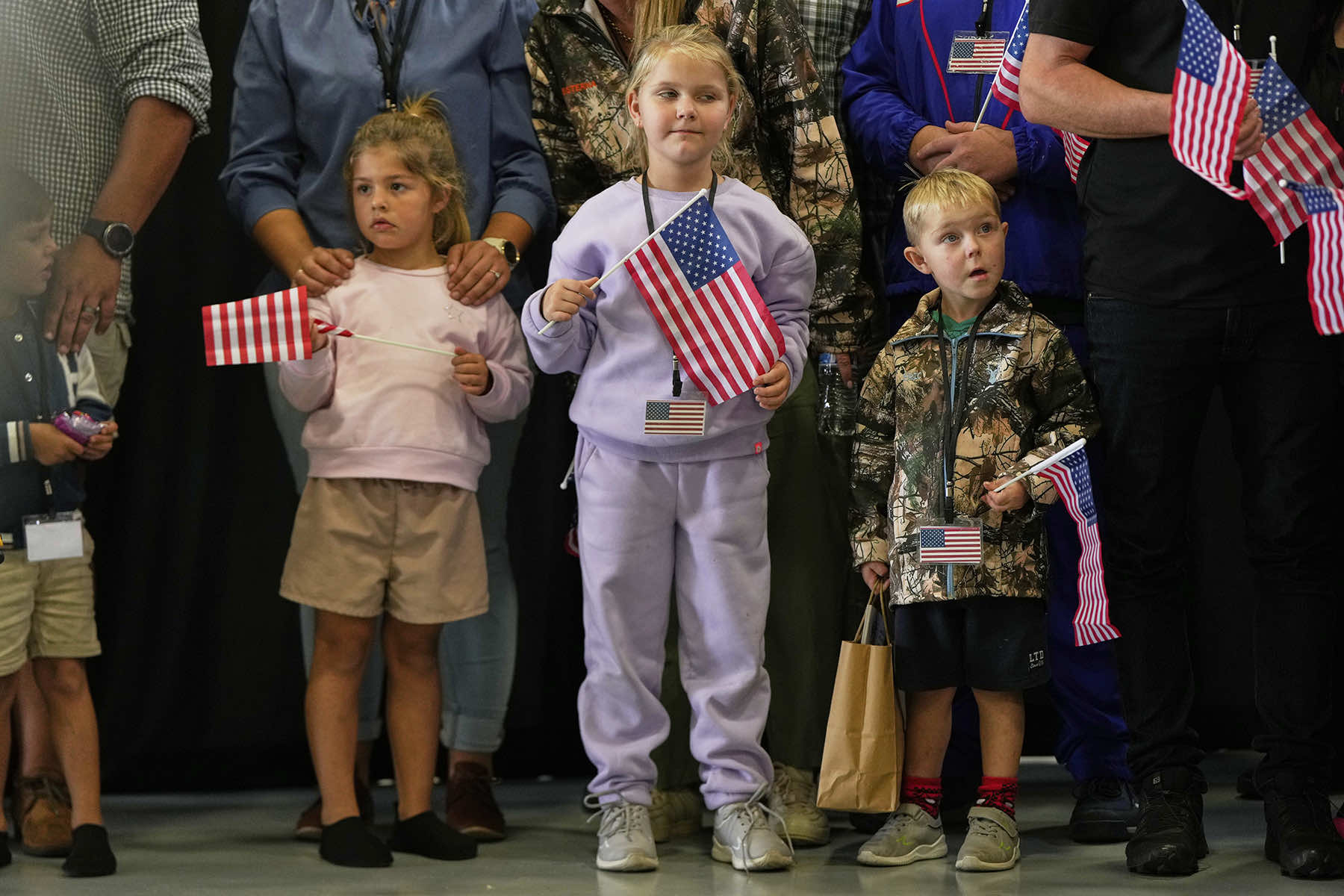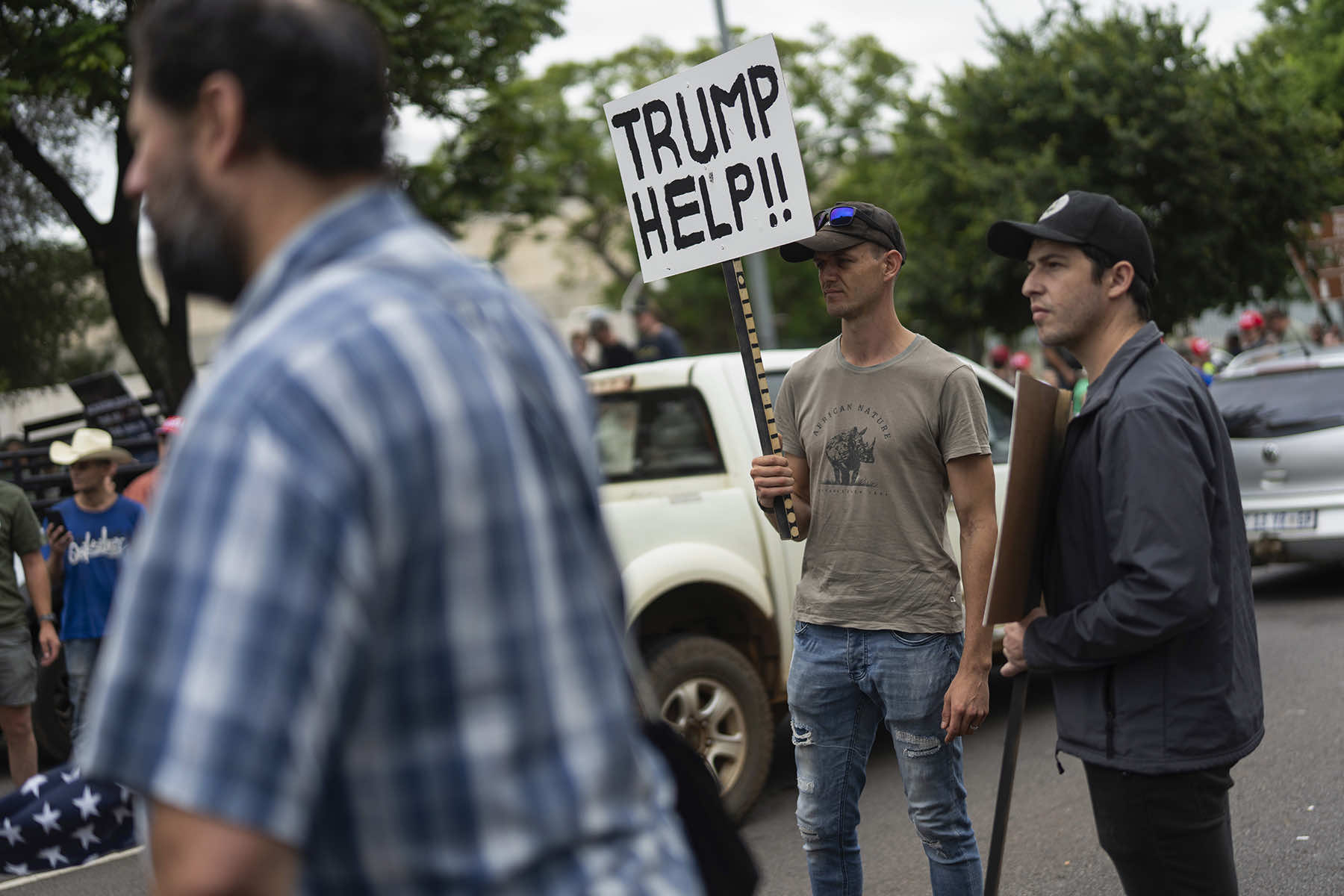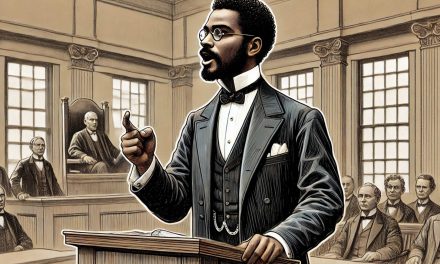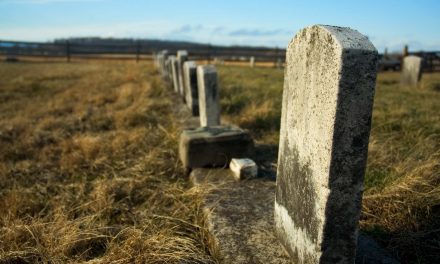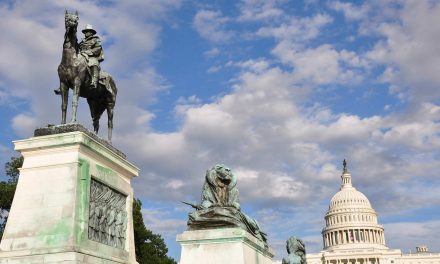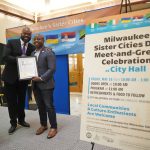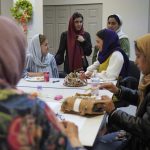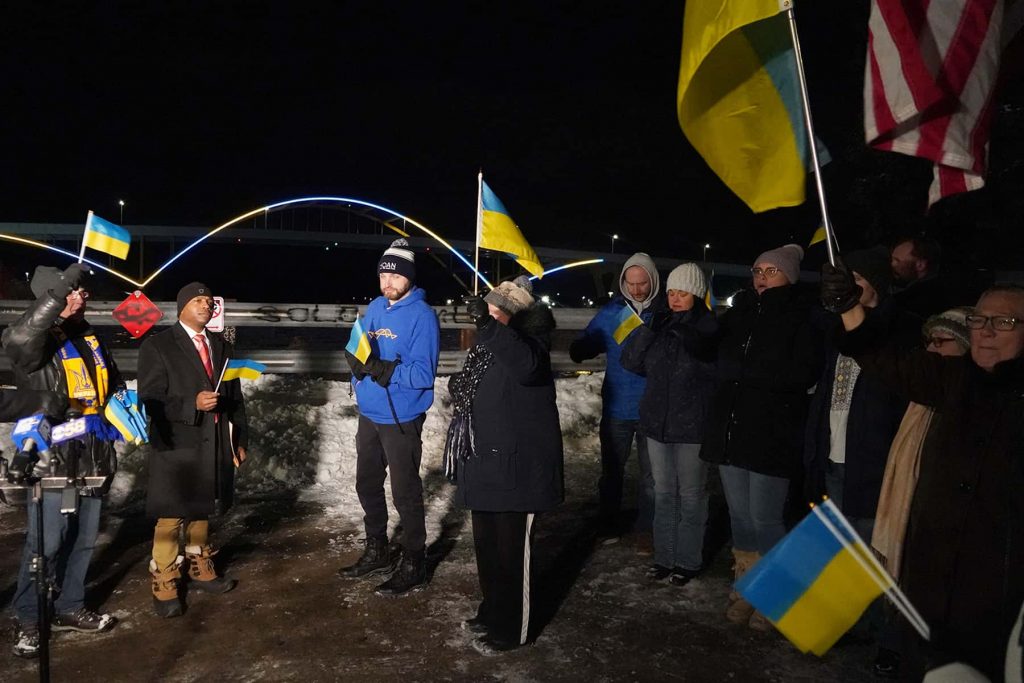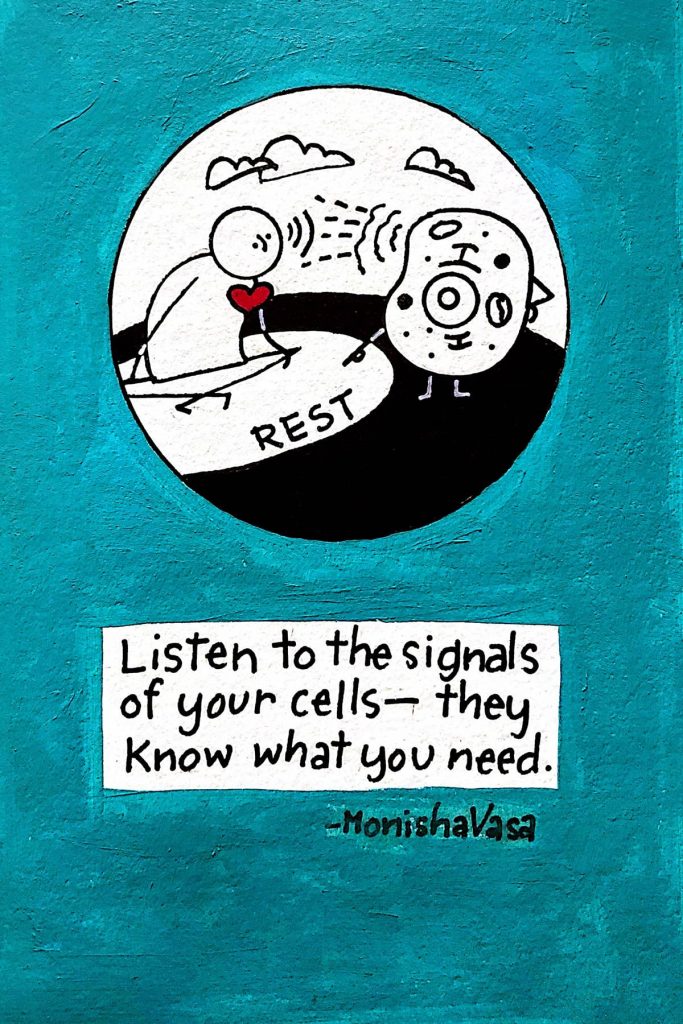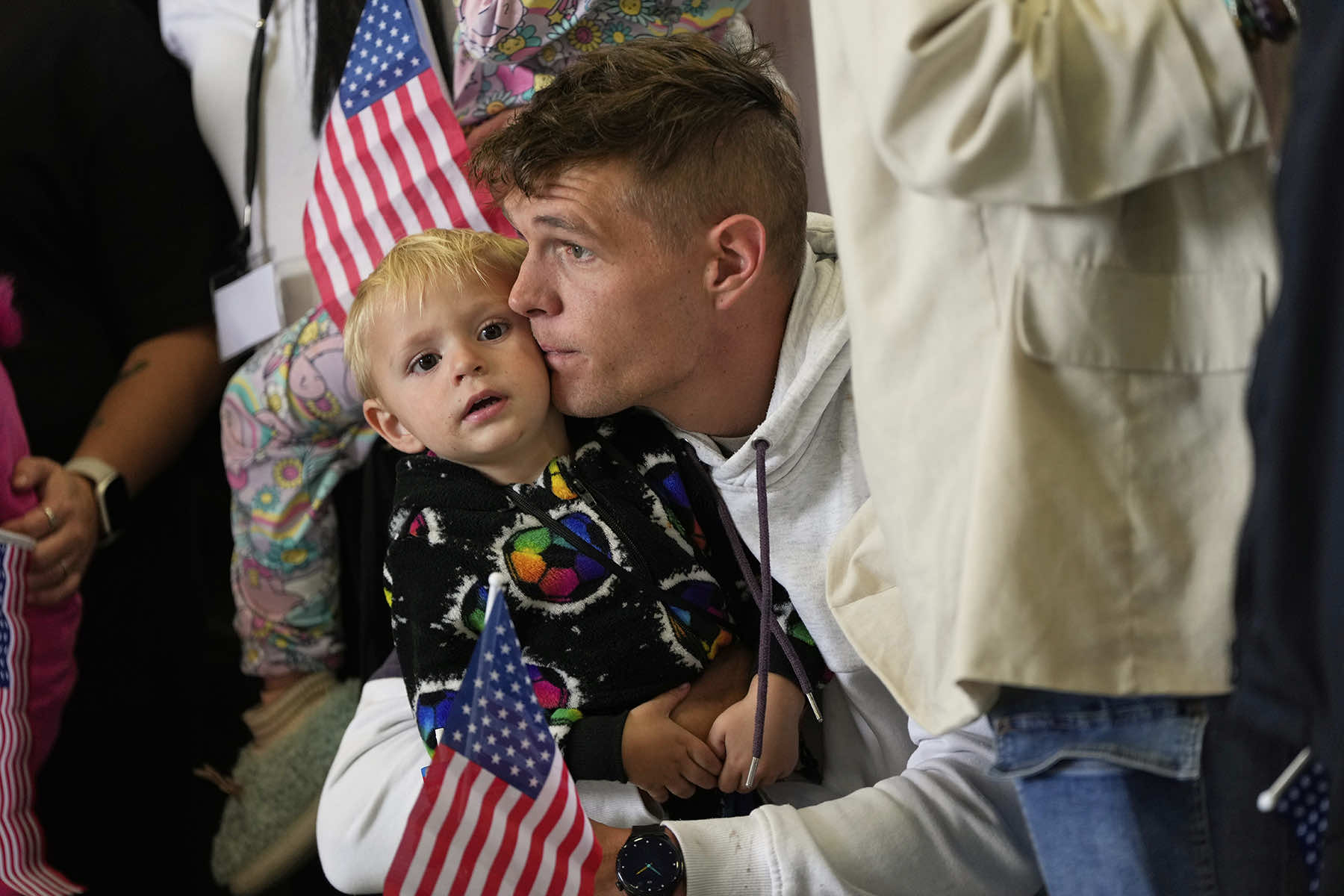
The Episcopal Church has drawn a sharp line against the Trump regime’s fast-tracked resettlement of White South Africans, condemning the program as a betrayal of America’s refugee principles and a dangerous politicization of racial identity.
In a break with decades of collaboration, the church announced it would withdraw from its federal refugee resettlement grants rather than take part in what it described as a racially selective, ethically indefensible campaign.
Presiding Bishop Sean Rowe announced the decision on May 12, hours before a private charter, paid for by U.S. taxpayers, carrying 59 White South Africans touched down at Dulles International Airport.
Described by the Trump regime as Afrikaner refugees, the group was greeted by U.S. officials and rerouted to new homes across the country. They were met not as displaced peoples, but with media fanfare and a political embrace rarely extended to those fleeing genuine conflict.
“In light of our church’s steadfast commitment to racial justice and reconciliation and our historic ties with the Anglican Church of Southern Africa, we are not able to take this step,” Bishop Rowe said.
The church’s rebuke is not just a symbolic protest. Episcopal Migration Ministries has helped resettle nearly 110,000 people over four decades, from war-torn countries like Congo and Myanmar to Ukrainian and Afghan families escaping political violence. That long-standing mission with the U.S. federal government ends this year.
“It has been painful to watch one group of refugees, selected in a highly unusual manner, receive preferential treatment over many others who have been waiting in refugee camps or dangerous conditions for years,” added Bishop Rowe. “I am saddened and ashamed that many of the refugees who are being denied entrance to the United States are brave people who worked alongside our military in Iraq and Afghanistan and now face danger at home because of their service to our country.”
The Anglican Church of Southern Africa includes churches in South Africa and neighboring countries. It was a potent force in the campaign against apartheid in the 1980s and 1990s, an effort for which the late Archbishop Desmond Tutu received the Nobel Peace Prize in 1984.
The term “refugee” is at the heart of the outcry. Under international law, a refugee must demonstrate a well-founded fear of persecution, based on race, religion, nationality, political opinion, or membership in a social group.
Yet even South African officials have rejected the idea that Afrikaners face systemic persecution. Afrikaners are not an oppressed group. They are, in fact, among the wealthiest and most politically influential people in the country, descended from European colonizers. Those colonizers institutionalized apartheid, a system of racial segregation that only ended in 1994.
South Africa’s government flatly denied the U.S. claim that these migrants are victims of “genocide,” a term used by Trump when defending the decision to prioritize their entry.
“There is no data at all that backs that there is persecution of White South Africans or White Afrikaners in particular who are farmers,” South African Foreign Minister Ronald Lamola said on May 12. “White farmers get affected by crime just like any other South Africans who are affected by crime. So this is not factual, it is without basis.”
President Cyril Ramaphosa echoed that position, blaming the disinformation campaign on right-wing lobbyists and public figures determined to cast White rule as victimhood.
“I had a conversation with President Trump on the phone and he asked me, ‘What’s going on down there?’ and I told him that what you are being told by those people who are opposed to transformation back in South Africa is not true,” President Ramaphosa said.
That campaign has found a powerful ally in Elon Musk, the South African-born oligarch and staunch Trump supporter who has amplified the “White genocide” narrative online.
The refugee situation is viewed by critics as a coordinated effort to import race-based grievance politics into U.S. immigration law, treating White identity as a category of protected status while other refugees, including religious minorities and U.S. allies in war zones, are blocked from entry.
None of that appears to matter in the Trump regime’s calculus. The State Department, led by Deputy Secretary of State Christopher Landau, welcomed the White South Africans personally.
“I want you all to know that you are really welcome here and that we respect what you have had to deal with these last few years,” Landau said.
Critics point out that such warmth has never been extended to refugees of color. The very idea that Afrikaners, members of a group historically responsible for apartheid, are now being recast as victims has drawn outrage from refugee advocates and faith leaders alike.
Church World Service, another faith-based agency, announced it would remain open to resettling Afrikaners. Its president, Rick Santos, acknowledged the contradiction.
“We are concerned that the U.S. Government has chosen to fast-track the admission of Afrikaners, while actively fighting court orders to provide life-saving resettlement to other refugee populations who are in desperate need of resettlement,” Rick Santos, CWS president and CEO, said in a statement.
He noted that the action proved the government knew how to screen and process refugees quickly.
“Despite the Administration’s actions, CWS remains committed to serving all eligible refugee populations seeking safety in the United States, including Afrikaners who are eligible for services,” added Santos. “Our faith compels us to serve each person in our care with dignity and compassion.”
The idea that “the government” has proven its ability to screen refugees quickly only underscores the depth of its selective cruelty. When the refugee is Black, brown, Muslim, stateless, or poor, the bureaucracy becomes a fortress of excuses. Processing the White South Africans was an example of who gets to be called human in Trump’s America.
The history behind this political maneuver is also as glaring as its consequences. Afrikaners are the descendants of Dutch, French, and German settlers who, through the National Party government of South Africa
It built and maintained apartheid, a brutal, codified system of racial segregation that drew direct inspiration from American Jim Crow laws. For nearly five decades, apartheid reserved land, voting rights, education, and employment almost exclusively for the White minority, and enforced these policies with state violence.
Much like Jim Crow in the American South, apartheid was not only a regime of legal inequality, it was an ideology of White Supremacy enforced through terror.
Black South Africans were restricted from voting, forced to live in designated areas, and denied access to quality education or healthcare. Police repression, economic deprivation, and cultural erasure were institutionalized. The system officially ended in 1994 with the election of Nelson Mandela, but its social and economic scars remain.
Today’s Afrikaners number around 2.7 million and still wield disproportionate wealth and land ownership in South Africa, despite making up less than 5% of the population. Claims of “genocide” or systemic persecution against them are not just unverified, they are grotesquely misleading.
Violent crime in South Africa affects all demographics. White farmers, like any rural residents, are vulnerable, but they are not targeted as an oppressed minority. The government has repeatedly condemned violence in rural areas and worked to address crime more broadly.
The idea that this group qualifies as a persecuted refugee class is a perversion of humanitarian principles. It is a rebranding of historical oppressors as political victims, weaponized for domestic gains by MAGA allies.
And it is not happening in a vacuum. The Trump regime has consistently restricted refugee admissions across the board. Under Trump’s order, the refugee ceiling was slashed to historic lows. Entire populations, from Syrian war survivors, to Afghan interpreters, and Sudanese political refugees, have been frozen out of a system that once prioritized vulnerability over ideology.
This latest exception shatters any pretense of fairness. What distinguishes these White South Africans is not a credible threat to their lives, but a political affinity with those in power.
They are White. They are anti-majority rule. And they are, in many ways, cultural kin to America’s far-right base, whose grievances are likewise rooted in the erosion of exclusive White control. That alignment is not incidental. It is strategic.
The presence of Musk in this equation is also not peripheral. Despite growing up during apartheid and benefiting from its social structure, Musk now positions himself as a defender of those who oppose post-apartheid reforms.
This has played directly into Trump’s rhetoric, offering an international echo chamber for a narrative that American conservatives have been eager to adopt, that White people are the “real” victims of today’s global political systems.
The Episcopal Church recognized Trump’s fake refugee ploy for what it is, a racially selective relocation initiative disguised as compassion.
Bishop Rowe noted that many refugees, including Christians, are victims of religious persecution and are now denied entry. He said the church would find other ways to serve immigrants, such as those already in this country and those stranded overseas.
This was not the first high-profile friction between the Episcopal Church and the Trump administration. Bishop Mariann Budde of Washington drew Trump’s anger in January at an inaugural prayer service in which she urged “mercy” on those fearing his actions, including migrants and LGBTQ+ children.
The church’s decision to sever ties with the federal refugee resettlement system comes at a price, logistically, financially, and emotionally. But for Episcopal leaders, that cost is less than the price of complicity.
What began as a migration policy has become something more insidious, a litmus test for the soul of American Christianity. In the face of a program that prioritizes Whiteness over need, and ideology over justice, the Episcopal Church has answered not with silence or hesitation, but with conviction.
© Photo
Jerome Delay (AP) and Julia Demaree Nikhinson (AP)

